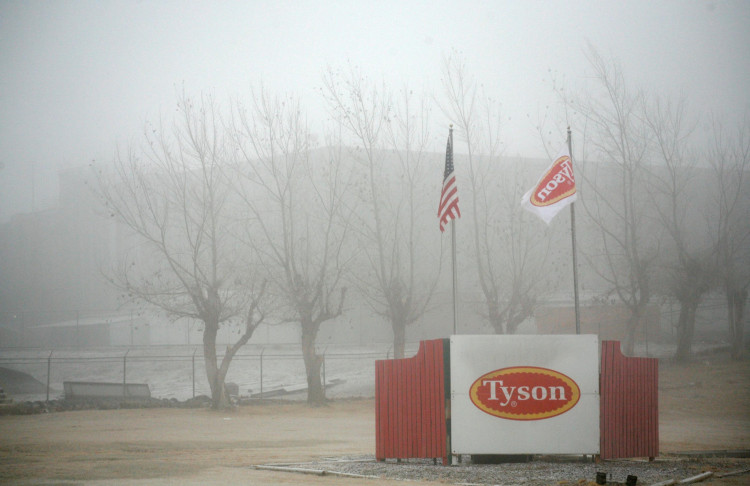One of the country's leading meat producers has warned there could be a massive shortage of beef, pork and chicken at grocery stores nationwide as a result of the ongoing global health crisis.
Millions of pounds of meat products will disappear from U.S. grocery shops as livestock and poultry processing facilities have been shut down by the coronavirus outbreak, Tyson Foods Inc's chairman disclosed.
John Tyson cautioned that the food supply network is collapsing in the U.S. as a increasing number of factory shutdowns have rendered producers with less marketing and livestock processing options and with workers getting sick.
Meat suppliers, including Smithfield and JBS, are shutting processing plants in the U.S. after personnel were infected by the Covid-19. Meatpacking staff often operate shoulder to shoulder for hours on end, which increases their risk of virus exposure.
On Sunday, Tyson posted a full-page ad at the Washington Post, The New York Times, and Arkansas Democrat-Gazette explaining the closures of the plants. "The food supply chain is breaking," Tyson wrote.
Meanwhile, a Delaware-based industry trade organization disclosed that a top poultry processor recently killed 2 million chickens and disposed of their carcasses, following a shortage in workforce that left the company unable to sell the meat.
Tyson Foods said it is trying to secure the workforce of over 100,000 with reimbursement when plants are shuttered, requiring masks and protective suits while employed, continuing the tradition of social distancing in local places, and waiving the waiting period for short-term disability certification, and medical co-payments for those who get ill.
The U.S. Department of Agriculture is purchasing $3 billion in farmers' fresh produce, meat and dairy to boost market prices and minimize food waste. The agency estimates that the price of beef in 2020 will increase from 1 percent to 2 percent, poultry as high as 1.5 percent, and pork between 2 percent and 3 percent, the Associated Press said.
Specific advice for meat and poultry processing facilities has recently been issued by the Centers for Disease Control and Prevention and the Occupational Safety and Health Administration, which address distinctive risks facing workers, such as long shifts in which they are in close contact with others.
The chief executive officer of the National Cattlemen's Beef Association, Colin Woodall, has warned that the current situation could escalate depending on certain factors.
Agriculture analyst Dave Amato, a member of the Commodity Futures Trading Commission's advisory body, divulged last week that U.S. packing plants are coronavirus hotspots, with 8 percent of the packing capacity being closed down. He stated a large number of processing facilities operate at 50 to 75 percent of usual capacity because of the absence of workers.





